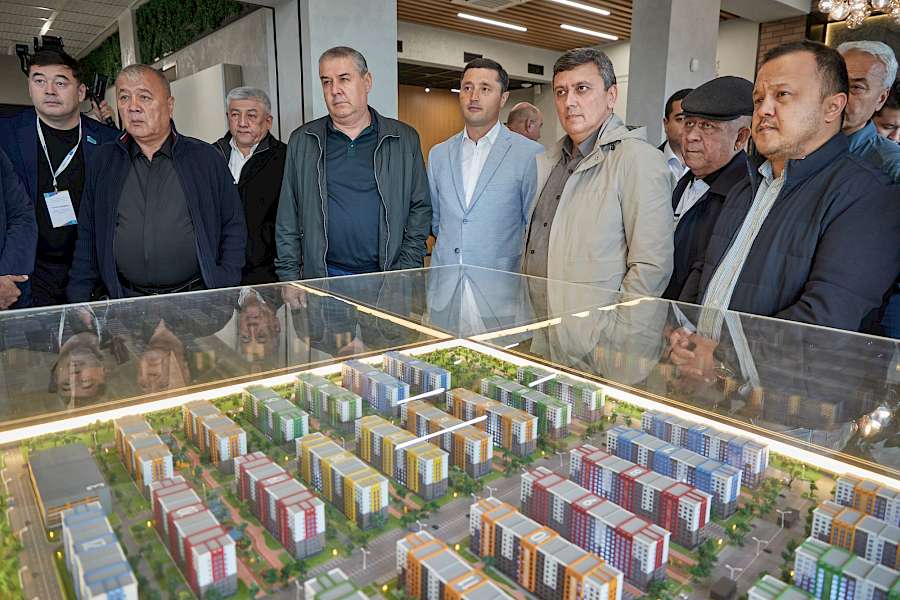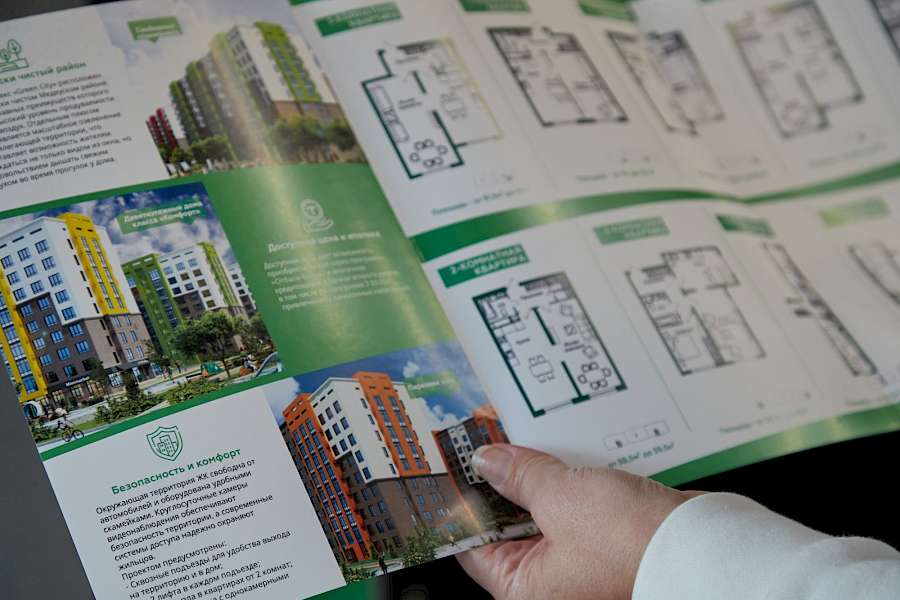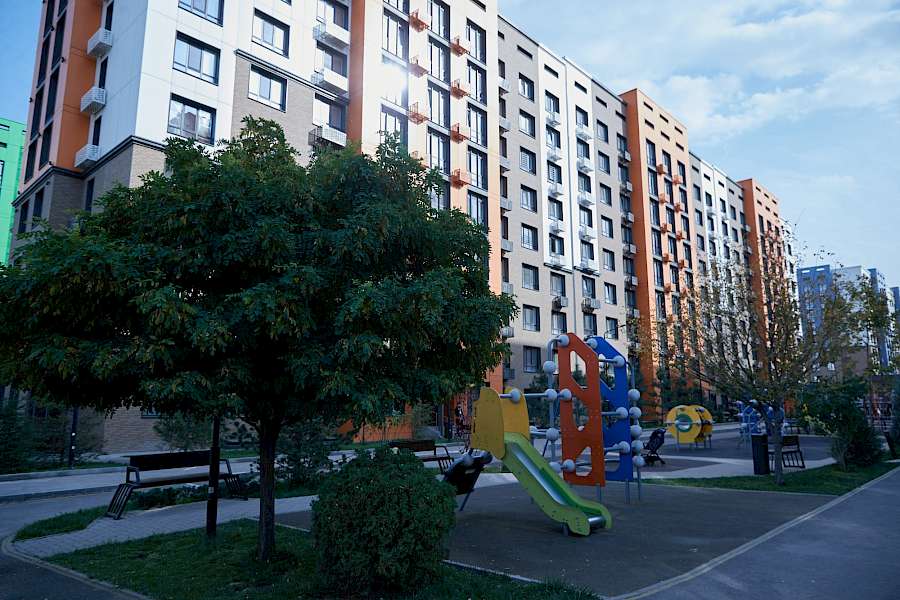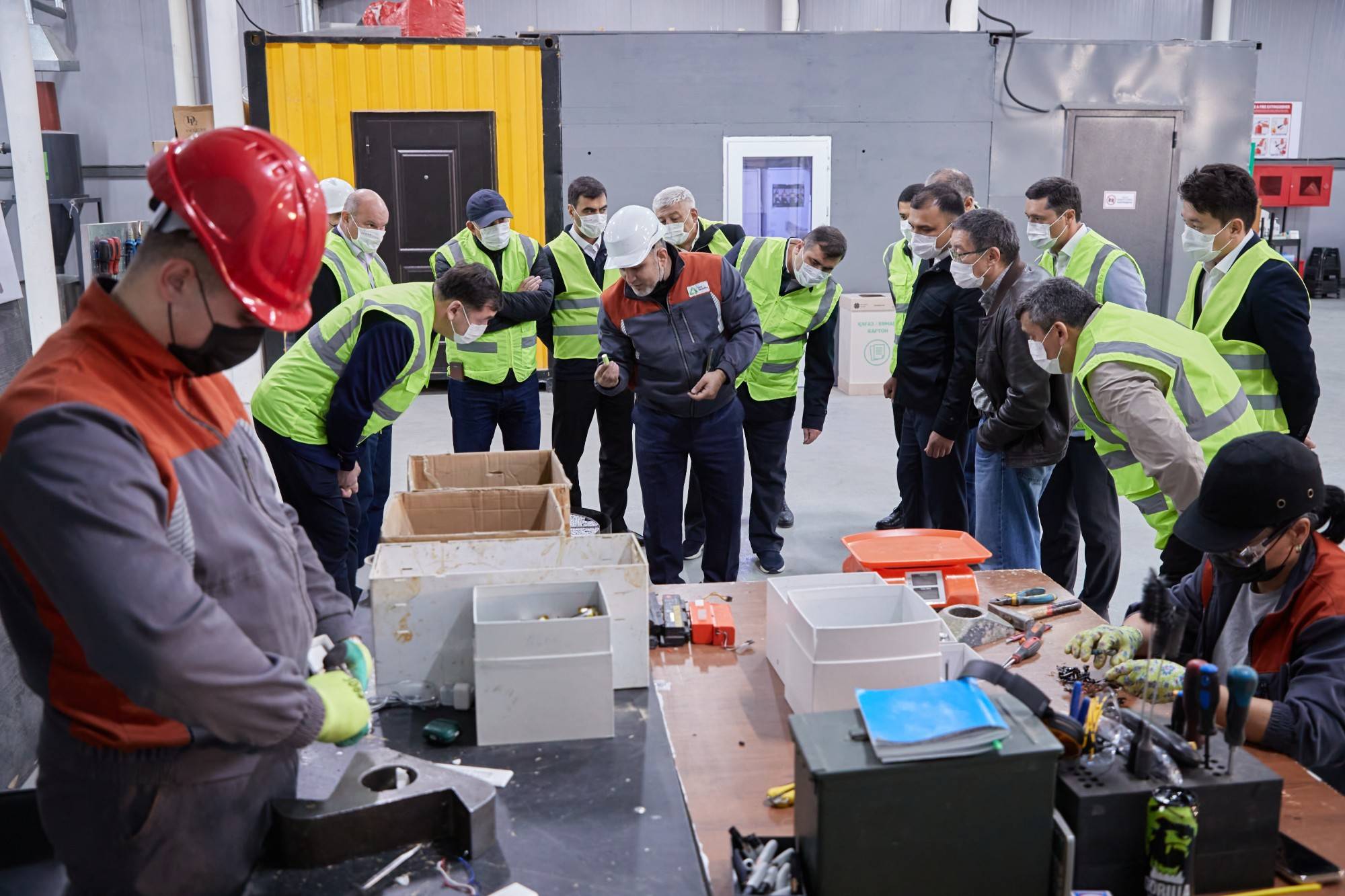
On 13-14 October 2025, leaders from across Central Asia gathered in Almaty, Kazakhstan for the Second Regional Dialogue on Circular Economy in Central Asia, co-organised by the EU SWITCH-Asia Policy Support Component (PSC) and the Regional Environmental Centre for Central Asia (CAREC). The event brought together Members of Parliament, government representatives, private sector actors, and international partners to strengthen policy ambitions and regional cooperation for Sustainable Consumption and Production (SCP) and the Circular Economy (CE).
A Regional Momentum for Circular Economy
Building on the success of the first dialogue held in Bishkek in May 2025, the Almaty Dialogue marked the next step from understanding to implementation, highlighting the role of Parliamentarians as drivers of circular transition across Kazakhstan, Kyrgyzstan, Tajikistan, Turkmenistan, and Uzbekistan. The meeting emphasised how Central Asia’s move toward circularity can help address pressing regional challenges, from waste generation and resource depletion to climate impacts, while unlocking new opportunities for green innovation, competitiveness, and job creation.
“The circular economy is no longer an environmental add-on — it is an economic transformation agenda,” said Mr. Johannes Baur, Head of Cooperation of the EU Delegation to Kazakhstan, in his opening remarks. “Through SWITCH-Asia and the EU’s Global Gateway, we aim to link policy reforms with sustainable investment pipelines — building resilient, low-carbon economies.”
Parliamentary Leadership for Circular Change
Keynote speaker Hon. Arman Kalykоv, Deputy of the Mazhilis of the Parliament of Kazakhstan, highlighted Kazakhstan’s commitment to circular principles, including the development of a Concept for the Management of All Types of Waste (2025–2030) and broader efforts to modernize waste management systems and create a national recycling infrastructure.
“Transitioning to a circular economy is not just an environmental necessity but a strategic imperative for modernization and diversification,” noted Hon. Kalykоv. “It offers an opportunity to turn waste into resources, create green jobs, and enhance our global competitiveness.”
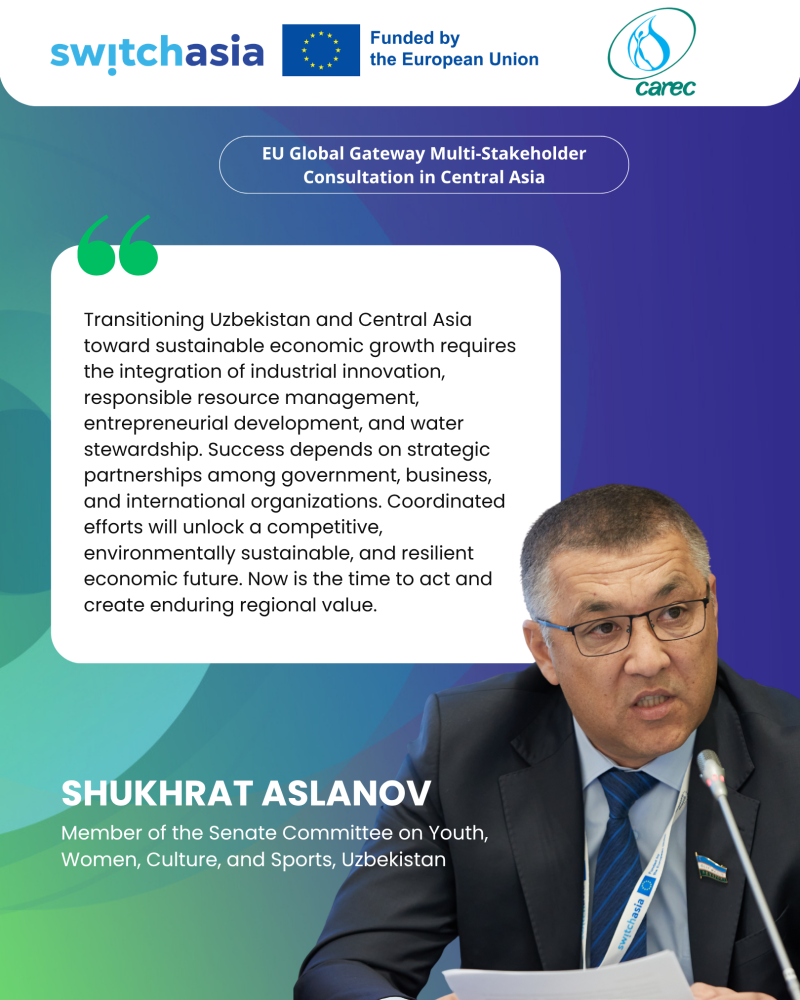
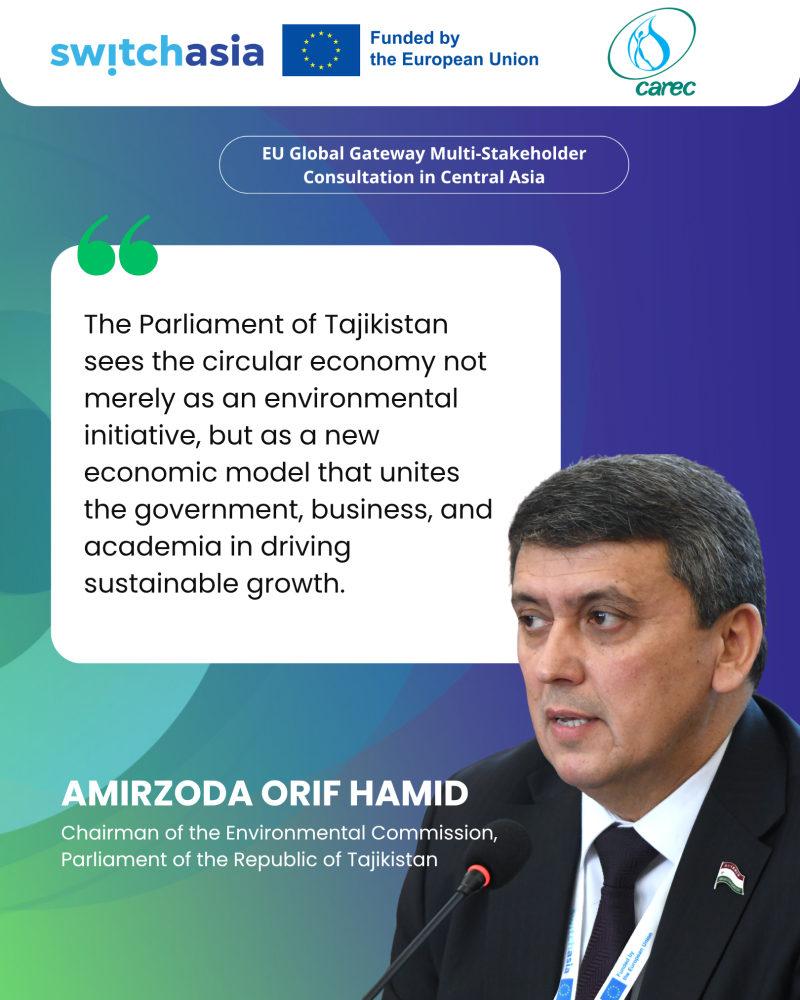
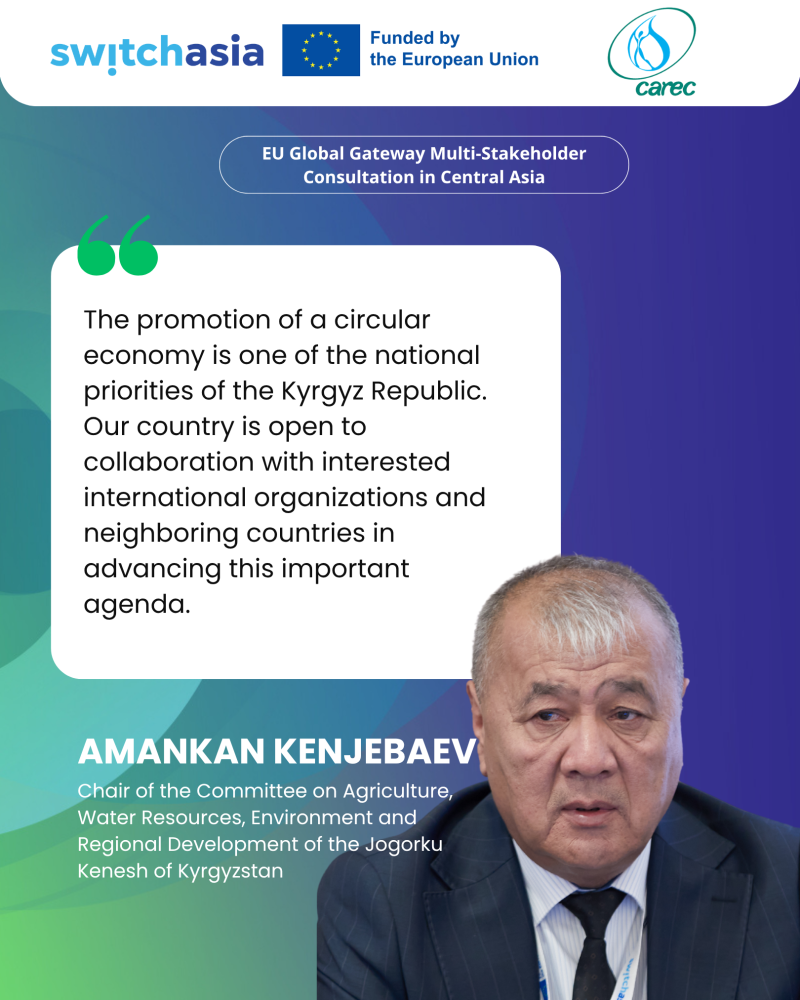
From Policy Dialogue to Action

The two-day hybrid event featured high-level panels and sectoral discussions focusing on national progress, business solutions, and regional frameworks.
Parliamentarians from the five Central Asian countries shared national experiences in integrating CE into policy and legislation, while private sector representatives, including Kazwaste, Holiday Inn Almaty, Tojikcement CJSC, and HAJTEX Group, presented examples of circular business practices in waste management, tourism, and manufacturing. Reflecting on the discussions Dr. Zinaida Fadeeva, Team Leader of the EU SWITCH-Asia Policy Support Component said:
“The circular economy is not only about waste reduction — it is about re-designing how value is created, shared, and sustained across societies. Through SWITCH-Asia, we are connecting Central Asia’s leadership and innovation with the EU’s Global Gateway to build resilient, inclusive, and circular economies that work for both people and the planet”.
Circular Economy in Action: Almaty Field Visits
A highlight of the Dialogue was the field visit showcasing circular economy in practice, providing Parliamentarians a firsthand view of how circular principles are being applied in Kazakhstan’s urban and industrial settings.
Green City Residential Complex (MG City)
Located in Almaty’s Duman-2 district, Green City demonstrates how sustainability can be built into modern housing. The 25.9-hectare site, comprising 27–29 nine-storey buildings, has achieved OMIR Gold Certification for Green Building, the first residential complex in Almaty with official energy labelling.
The project integrates circular economy principles through:
- Durable, energy-efficient materials (facades, insulation, windows).
- Flexible layouts that allow modernization without demolition.
- Efficient waste management systems and recycling points.
- Green public spaces and easy access to public transport.
Green City stands as one of Almaty’s pioneering examples of sustainable urban living, combining environmental responsibility with comfort and resource efficiency.
Technic Destroy / First Recycling
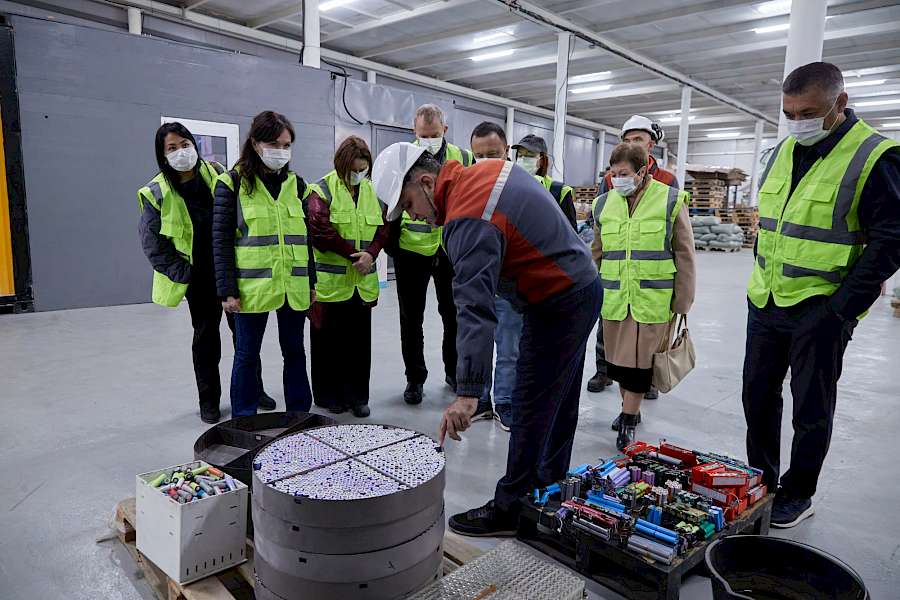
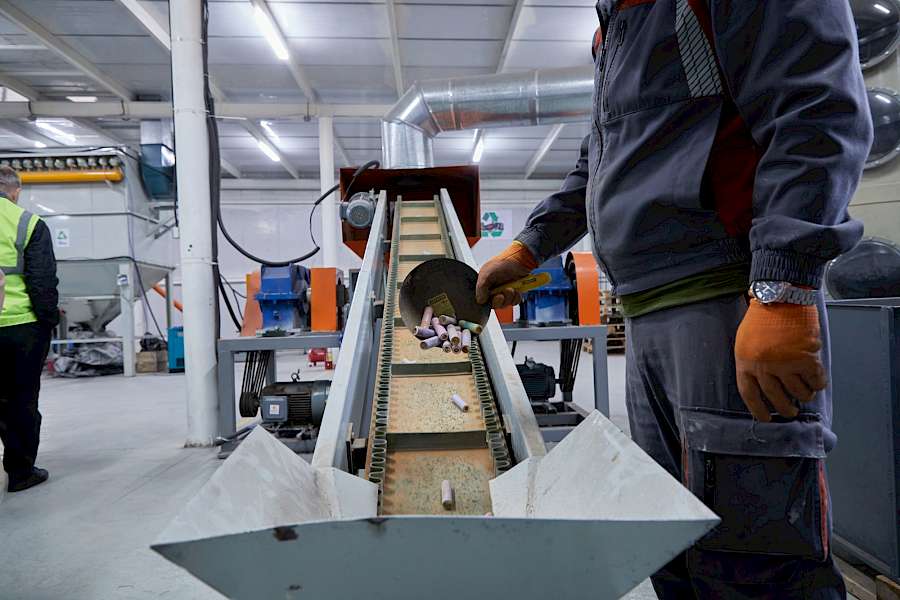
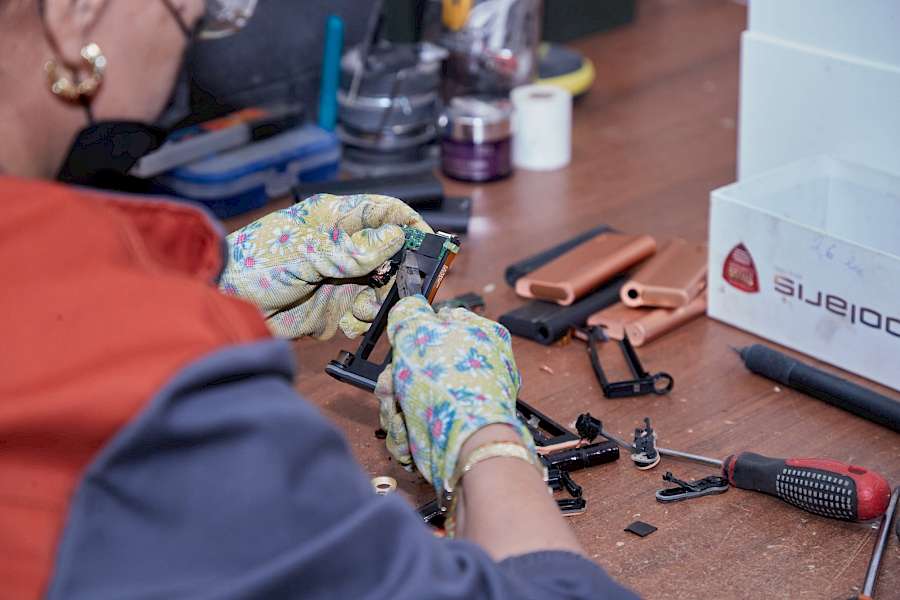
The visit also included Technic Destroy, operating under the brand First Recycling — Central Asia’s first lithium-ion battery recycling plant, launched in 2024. With 15 years of experience in waste management, the company processes up to 30 tonnes of batteries per month and recovers valuable materials such as lithium, cobalt, nickel, copper, and aluminium.
By replacing raw extraction with closed-loop recycling, the facility:
- Reduces CO₂ emissions by 70–80% compared to primary lithium mining;
- Prevents toxic contamination of soil and water; and
- Saves up to 250 kg of lithium per tonne of batteries processed.
This initiative exemplifies Kazakhstan’s growing circular industry, turning hazardous waste into economic value while protecting the environment.
Towards a Central Asia Circular Economy Partnership Framework

A key outcome of the Dialogue was the consultation on the Framework Programme on Partnerships for Circular Economy in Central Asia, a joint initiative to be launched at the Central Asia Ecological Summit 2026 in Kazakhstan.
This Framework will serve as a regional cooperation platform — the Central Asia Circular Economy Alliance (CACEA) — coordinating roadmaps, strengthening financing, and scaling circular solutions across key sectors:
- Agrifood systems
- Construction and infrastructure
- Textiles and manufacturing
- Tourism
- Resource-efficient cities and mining industries
“Dr. Fadeeva emphasised that, by working together, we can achieve more. The Framework Programme will turn our shared ambitions into coordinated regional action - bringing national priorities, business innovation, and investment opportunities into alignment".
The Dialogue concluded with a closed meeting of Parliamentarians, moderated by experts from SWITCH-Asia and CAREC, to discuss next steps for establishing the Central Asia Circular Economy Alliance (CACEA) and developing national CE roadmaps under a coordinated regional approach.
The outcomes of this Dialogue will feed into the Regional Ecological Summit 2026, where Central Asian countries are expected to endorse the Framework and formalize mechanisms for knowledge exchange, financing, and implementation.
Related articles featured in the media:
CAREC
Kazakhstan
Kyrgyzstan
- https://mineconom.gov.kg/ky/post/11261
- https://mineconom.gov.kg/ru/post/11261
- Facebook: https://www.facebook.com/100066349407020/posts/pfbid02ELCh9fFYNayLTi58wc9AxdwUZXuHhWUWaU6LP1QR4G8DRFBkhPiTAe3HKY9Jg2zfl/?app=fbl
- Instagram: https://www.instagram.com/p/DQBxNnpipnG/?igsh=dmdxM3o2d24wZWZr
- American University of Central Asia: https://www.auca.kg/en/tspc_news/6795/
Tajikistan
- https://egov.tj/site/parlament-tj/press/news/details/2417?lang=tg
- https://namsb.tj/allnews/news/pochemu-biznesu-vazhno-govorit-o-czirkulyarnoj-ekonomike/
Turkmenistan
Uzbekistan
- https://senat.uz/international-cooperation/post-4270
- https://senat.uz/ru/international-cooperation/post-4270
Shortan Gas Chemical Complex
- In Uzbek: https://sgcc.uz/#/post/25b7c0ee-f979-4e99-a195-43c16496f309
- In Russian: https://sgcc.uz/#/post/25b7c0ee-f979-4e99-a195-43c16496f309
- In English: https://sgcc.uz/#/post/25b7c0ee-f979-4e99-a195-43c16496f309
Contact:
SWITCH-Asia Policy Support Component (PSC) | [email protected]


